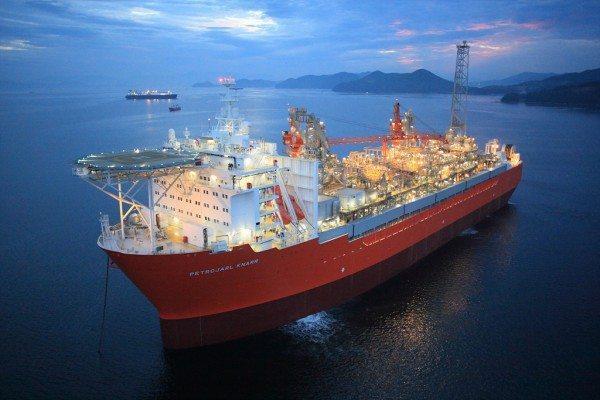
The UK Government has announced plans for regulatory “accelerators” which it claimed could shave “years off” development time for new oil and gas projects in the North Sea.
As part of its new energy security strategy, Westminster said it will establish “Gas and Oil New Project Regulatory Accelerators” to provide “dedicated, named project support” and bring “rapid development” of these schemes.
The strategy said this could “take years off the development of the most complex new opportunities”.
The UK Government said the move relates to a new way of working, not a new regulatory body, and projects will see relevant regulators meet together with the developers from the start, to help coordinate the way forward and ensure that the various roles and responsibilities are clear.
As things stand, the environmental regulator OPRED seeks to approve projects within just eight weeks of a public consultation closing, raising questions over the government’s claim.
The strategy also confirms that a new licensing round will be held in Autumn, which will include the new checkpoint system.
Tessa Khan, director of the campaign group Uplift, said any accelerator policy which would rollback the “already weak” climate regulations “would be environmentally & economically damaging”.
She added that, given OPRED’s position, “commercial considerations” are the main barrier to projects, such as availability of oil and gas rigs.
In any case, regulations aren't the main barrier to project speed. The regulator aims to make a decision on a project's environmental merits within 8 wks of public consultation closing, so lead time to first oil is driven by commercial considerations, availability of rigs etc
/4— Tessa Khan (@tessakhan) April 7, 2022
However, Deirdre Michie, chief executive of the Offshore Energies UK trade body, said: “The announcement of a new licensing round and the proposal to cut the time needed to get those approvals, by the introduction of regulatory accelerators, will help our industry carry on providing the UK with the energy it needs.”
The policy document states the UK must fully utilise its “great North Sea reserve”, citing an estimated untapped resource of nearly 8 billion barrels.
Reduce gas demand by 40% by 2030
The overall strategy has drawn criticism, particularly on a lack of action on reducing demand and improving energy efficiency.
🧵Thoughts on the Energy Strategy…The lack of short-term action on bills is bad – the strategy is not a plan for now, its a plan for 2030. But if you take it as that, beyond the new targets, there is real substance on which Govt should be applauded… https://t.co/eJgHXV2qy7
— Josh Buckland (@jbuckland13) April 7, 2022
However, the government said the measures will reduce reliance on gas consumption “by more than 40% by 2030”, even as the UK could still use a quarter of the gas it does now by 2050.
Andy Samuel, chief executive of industry regulator, the North Sea Transition Authority (NSTA), said he is “pleased to see” the focus on cutting demand, adding that the UK should continue to meet its own declining needs while “scaling up renewables as quickly as possible”.
HMG’s BESS – energy security through energy diversity: we welcome work to speed up grid connections for offshore wind 🌬️ EV charging ⚡; an increased H2 target, and the role of home-grown lower carbon North Sea oil and gas #bpnetzero https://t.co/mBEggmvPx6
— bp United Kingdom (@bp_UK) April 7, 2022
Professor Paul de Leeuw, director of the Energy Transition Institute at Robert Gordon University, said the strategy recognises the need to “streamline regulatory and consenting processes” which is “certainly a big step in the right direction to shape a ‘new-look UKCS’”.
He added: “With the UK’s own domestic gas production declining and with LNG imports typically having around three times the carbon emission intensity compared to gas produced in the UK, the strategy also supports the role of oil and gas as a bridge to a lower carbon world.”
The strategy also sets out plans for a new public body called the Future System Operator (FSO), which will provide strategic oversight of the development of the UK’s energy suppliers and networks, covering both gas and electricity.
OEUK said it has “consistently called for a greater emphasis on long-term planning and preparation in UK energy infrastructure” to ensure consistent planning and policy over the years it takes to deliver such projects.
Jobs and electrification
The strategy said 40,000 new jobs will be created in clean energy by 2030.
Asked whether this is separate to the 40,000 promised this decade through the North Sea Transition Deal, signed last year, a government spokesperson said the estimate is “over and above previous future employment expectations”.
The energy security strategy, which emphasises continued recovery of North Sea oil and gas, arrives after last year’s Transition Deal committed operators to drastic emissions reduction targets this decade: 10% by 2025, 25% by 2027 and 50% by 2030.
Electrification is seen as a key means of delivering those targets and the regulator said today it wants to see two floating wind projects delivering power to offshore production hubs by 2027.
Andy Samuel, of the NSTA, said the regulator would help meet that through action on electrifying platforms and a “tough” regime to crack down on flaring and venting offshore.
“All this against the backdrop of the climate emergency, vividly detailed in the IPCC’s report this week, means that the need for an energy strategy responsive to these needs is very clear and the NSTA will work at pace to support the government targets laid out in today’s publication.”

 © Supplied by RGU
© Supplied by RGU © Supplied by NSTA
© Supplied by NSTA